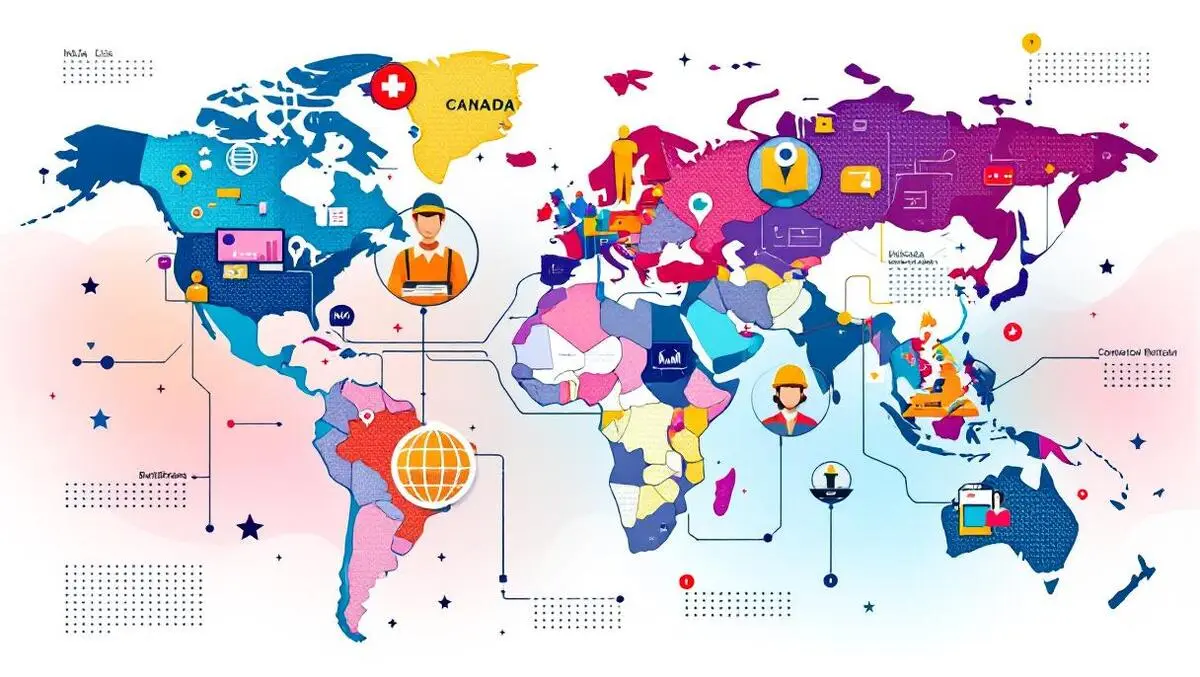
Contractor & consulting roles surge as global hiring shifts
Oyster has released its 2025 Global Hiring and Impact Report, revealing significant changes in global employment trends, with contractor and consulting roles experiencing substantial growth.
The report documents a 46% increase in contractor engagements and a tenfold rise in consulting hires year-on-year, highlighting a movement towards flexible, on-demand expertise in workforce planning worldwide.
"What we're witnessing is the emergence of an 'Expertise Economy,' and it's a fundamental realignment of how companies and talent engage with each other," said Marina Farthouat, Vice President of People at Oyster. "Knowledge workers are increasingly defining their careers through expertise and meaningful projects rather than company loyalty, while organizations are building fluid, specialized teams that can adapt quickly to changing market demands."
The research draws on data from Oyster's platform and a survey of over 500 human resources leaders. Findings suggest that as companies confront economic uncertainty and adjust priorities, they are rethinking not only the location of their workforce but also how they engage talent in more adaptable ways.
Oyster's platform data shows that, in 2024, companies hired in over 110 countries, targeting markets offering specialised talent, suitable time zones, and operational capability. Europe accounted for the highest share of new hires with 43%, followed by Asia and the Middle East with 24%, and North America at 20%. More than half (54%) of these hires were made by United States-based companies.
The report identifies the Philippines (9%), United States (8%), India (7%), Canada (6%), and United Kingdom (6%) as the top five countries for the highest volume of new hires. The fastest growing hiring markets included Mexico, with a 136% increase, Peru (89%), Switzerland (88%), Colombia (68%), and Serbia (43%).
Across all regions, technology roles represented 35% of global hiring, followed by sales and marketing (12%) and administrative support (6%), with particularly strong demand for these positions in Asia and South America.
Rising contract and consulting work reflects broader developments in workforce flexibility, as organisations seek agility amid budget constraints and high revenue expectations. Oyster's platform saw contractor engagements rise by 46% year-on-year, while permanent hires fell by 2%. Consulting hires grew by ten times, with fractional, project-based, and on-demand expertise becoming increasingly valued. The software and services sector represented 35% of remote hiring, and professional services accounted for 16%, marking these industries as particularly compatible with distributed work models.
The report also shows that hybrid work continues to be prominent, with 84% of companies reporting that some or all employees work in a hybrid arrangement.
"Companies are taking a deliberate approach to their global workforce composition, strategically designing teams that blend permanent roles in some regions with project-based contractor expertise in others," said Erin Goodey, Director of People Services at Oyster. "The Philippines, India, and emerging markets across Latin America have become go-to destinations for specialized technology talent, while we see more sales and marketing roles distributed across Europe and North America. It's about having the right expertise in the right engagement model for each specific function."
The data points to growing employer confidence and preparedness to hire globally, particularly within emerging markets. In 2024, 47% of new hires via the Oyster platform originated from emerging economies, indicating a shift in trust towards global talent pools. Of note, while only 37% of first international hires were made in emerging markets, this figure increased to 48% for subsequent hires by the same companies.
The survey found 57% of businesses plan to hire international talent in the next 12 months. Additionally, 67% of HR leaders felt equipped to manage distributed teams, and 56% of organisations had formal programmes in place to support hybrid work, which included training on cultural awareness, asynchronous collaboration, and coordinating across different time zones.
"What's very interesting is how quickly companies adapt once they make that first global hire," continued Farthouat. "Organizations that initially approach global hiring with caution quickly expand their footprint as they experience the value of specialized skills. Not long ago, building a global team was considered bold and forward-thinking. Now, it's simply smart business."


